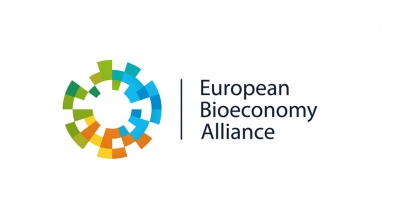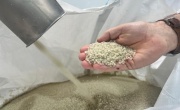New Bioeconomy Alliance calls for EU action
@LvNistelrooij @ launch of #EU #Bioeconomy #Alliance in EU Parliament: "it's time to make it happen!" @IndBiotechEU pic.twitter.com/ELHHtUhCFl
— EuropaBio (@EuropaBio) February 4, 2015
The European Commission (EC) should do more to promote the bioeconomy, the European Bioeconomy Alliance (EBA) has announced at its official launch.
The EBA, which was officially launched at an event at European Parliament yesterday evening (4 February), is a new, informal alliance of European associations active in the bioeconomy. Active in a variety of sectors, including agriculture, food, technology, forestry/pulp and paper, chemicals, and energy, the EBA’s members so far include: the European farmers’ association, Copa-Cogeca; European forestry organisations; starch, sugar, bioethanol and vegetable oil producers; the European biotech industry association EuropaBio; the Bio-based Industries Consortium (BIC); European Bioplastics; and the Confederation of European Paper Industries, amongst others.
The EBA’s members first began working together to help create and develop the EU’s new Bio-based Industry’s (BBI) public-private partnership, which was launched by industry and the European Commission in July 2014.
The alliance aims to create a more supportive and holistic environment for bioeconomy industries and to support food and energy security, climate change mitigation, job creation, and a sustainable economy.
Recommendations for the EC

The alliance is now calling on the EC to further support the development of the bioeconomy (‘the use of biological feedstocks to generate economic outputs in the form of energy, materials or chemicals’), which has an estimated value of €2 trillion (£1.5 trillion) and already provides more than 22 million jobs to EU citizens (9 per cent of the workforce) and will ‘increasingly play an important role in boosting Europe’s smart and sustainable economic recovery’.
Specifically, the EBA is calling on the EC to set bioeconomy development as a priority in its new €315-billion [£236-billion] investment plan, as well as in national and regional measures.
The alliance argued: ‘Developing the bioeconomy is only feasible if the European Union provides a holistic, coherent and harmonised framework in a range of policy fields: agriculture, forestry, marine, industrial, climate, environment, energy, research, innovation and regional development. The EU needs to act on the following four main fronts in particular, in order to help Europe become a leader in the bioeconomy.’
These are:
- implementing priority recommendations from the Lead Market Initiative on bio-based products, focusing on: access to feedstock; research, development and innovation; access to markets; public procurement; and communication;
- encouraging member states to implement measures to: increase agricultural and forestry productivity and soil fertility in a sustainable way; and facilitate mobilisation and access to renewable feedstock at competitive prices;
- addressing barriers to investment in first commercial operations, such as biorefineries in Europe, perhaps through the BBI partnership; and
- engage with civil society, together with farmers, forest owners and industry, to 'encourage the debate on shaping a more competitive, sustainable bioeconomy for Europe'.
‘Huge potential for the creation of jobs and growth for all sectors’
Speaking to Resource, Joanna Dupont-Inglis, Director of Industrial Biotechnology at EuropaBio, said: “We know that there is huge potential in Europe for growing and developing the bioeconomy and we want to work together to make sure that the EU develops a world-leading bioeconomy that makes the most of the resources and the technology that it has.
“We have a great technological edge in terms of converting renewable raw materials into new products that were previously created from fossil fuels.
By developing this further and making it the norm in Europe, there is huge potential for the creation of jobs and growth for all sectors represented by the alliance and a great many other associated sectors.”
She concluded: “We want to help ensure that the EU boosts the competitiveness of some of its most important sectors, identifies new opportunities to create much-needed jobs, and attracts investment to grow new markets for sustainable, EU biobased products. The future is biobased. In the EU, we have the vision, the expertise and the tools that we need. Developing more supportive and coherent policy is essential for the EU to lead this renewable revolution.”
This is the second announcement of a bioeconomy alliance formation in Europe in as many days, following news that the British Association of Biobased and Biodegradable Chemicals (BABBC) will officially launch at an event in London next week.
Anyone wishing to get involved with the EBA should email [email protected].
Find out more about the European Bioeconomy Alliance.








